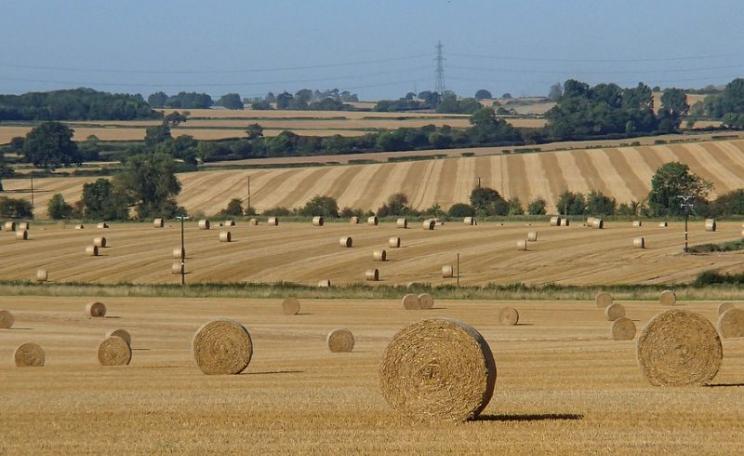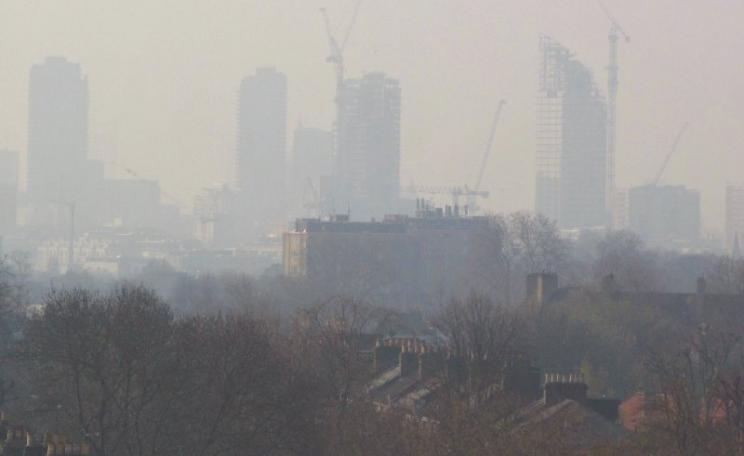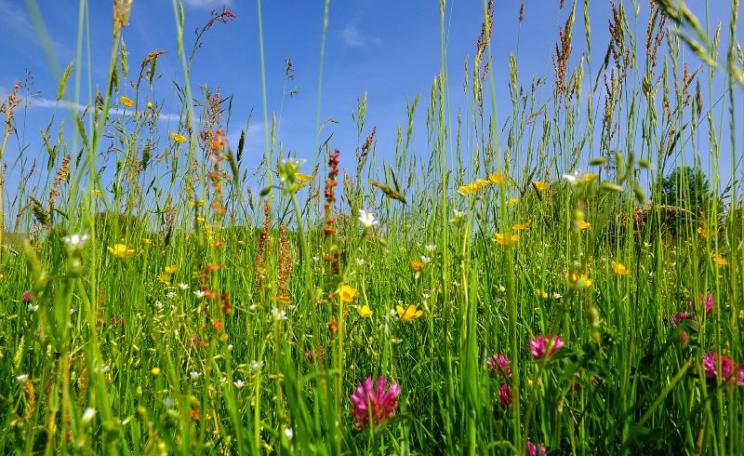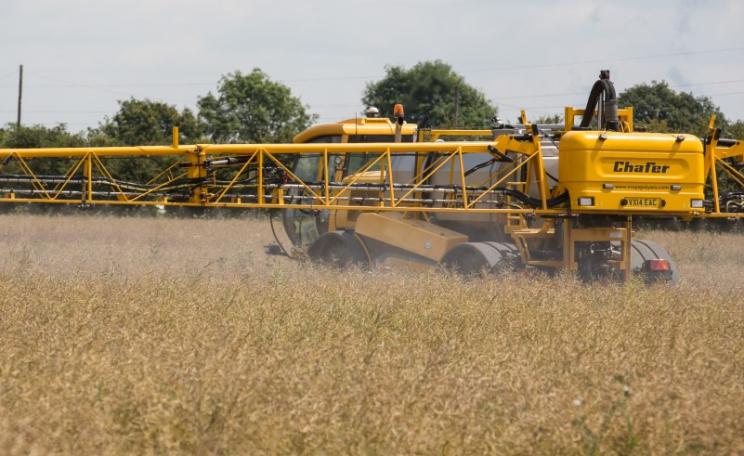Here is an opportunity to move towards an ecologically sustainable farming system; one that focuses on supporting family farms and relocalising food production, creating thriving rural communities.
The government needs some help when it comes to planning the future of farming post-Brexit.
When asked what research Defra has commissioned in the last six months to inform the development of agricultural and environmental policy, the answer was ... none! ‡
The absence of any plan for our food and farming sectors is setting the cow bells ringing, especially given the extreme form of Brexit that Theresa May's government is pushing for.
In particular, leaving the EU in the way the government envisage could prove hugely damaging to our family farmers and small scale food producers.
Around 65% of total UK agricultural exports go to the EU, while around 70% of the UK's imports originate from other EU countries. Removing us from the single market risks punitive tariffs on exports and imports.
Meanwhile restrictions on the free movement of EU citizens could make it impossible for farmers to take on the seasonal migrant labour from EU countries that is crucial to them.
Ploughing a lone furrow: agriculture post-Brexit
The lack of vision by government is the basis for two reports I commissioned on the future of agriculture in the UK. The reports aim to inform policy makers, farmers, food producers and rural communities.
But the ideas are relevant to us all because the future of food and farming will help shape our economic, social, environmental and physical landscapes, not to mention the food we eat!
The first report is by The Soil Association, a leading and well-known charity promoting better food and farming. The second report is by Simon Fairlie, a small holder and editor of The Land Magazine, with input from the Land Workers' Alliance.
Both reports foresee a future where policies put soil health and biodiversity first, and where the way we use land helps tackle climate change. They agree that to achieve this, farmers will need to receive at least as much money as they currently get through the Common Agriculture Policy (CAP).
However, they say direct payments based on land area should be scrapped and retargeted at paying farmers for the public benefits they provide. They also call for additional funding for advice, training, and farmer-led research and innovation.
Sowing some radical ideas
Each report provides plenty of interesting ideas to chew over. Simon Fairlie calls for a new government funded agricultural advisory service providing information to all land managers on sound agricultural practice. This service could be based in agricultural colleges as it is in the USA.
Here is an opportunity to move towards an ecologically sustainable farming system; one that focuses on supporting family farms and relocalising food production, creating thriving rural communities.
He also calls for 20% VAT on meat products to help reduce animal feed consumption and reduce net greenhouse gas emissions. However, this would only be applied to factory farms and other larger scale producers; small-scale farmers selling meat direct to consumers would not be affected.
Then there is also the idea of 'polluter pays' labelling on food products which involve the use of artificial fertilizers, pesticides, herbicides and GM materials, with farmers and retailers who employ these measures bearing the cost of informing the public of their use.
Meanwhile the Soil Association calls for a new national agroforestry strategy because of the multiple benefits of planting trees on farms, such as increased productivity, resilience, wildlife, soil health, and carbon storage.
They also identify the huge potential to support UK food and farming through public procurement. The UK public sector spends £2.4 billion each year procuring food and catering services. Using procurement could be a game changer in driving demand for healthy food that meets the highest standards, achieves economies of scale in processing and lowers consumer prices.
There are also calls for a new guarantee of a 'good life' for all animals, providing incentives and funding to transform farms into high welfare systems and where the routine preventative use of antibiotics is banned.
Taking the right track
Not only is the government clueless on how to improve the lot of our farmers and food producers, the moves it has made so far risk taking us in the wrong direction. In chasing trade deals with the US and Canada it threatens to tear up the higher EU standards that have shaped UK agriculture over the last 40 years.
Such trade deals could leave farmers increasingly vulnerable to market forces and lead to the intensification of agriculture, which would place greater strain on our soils and threaten animal welfare standards.
Furthermore, as the EU's 2015 State of Nature report identified, intensive agriculture is one of the leading causes of the current decline and degradation of nature. Family farms could all but disappear from our landscape.
It is therefore critical that we offer an alternative vision of agriculture post-Brexit. Here is an opportunity to move towards an ecologically sustainable farming system; one that focuses on supporting family farms and relocalising food production, creating thriving rural communities.
It is also an opportunity to refocus land management on encouraging biodiversity, improving animal welfare and helping to tackle climate change.
Molly Scott Cato is Green MEP for the South West and sits on the Agricultural Committee in the European Parliament.
‡ Written Parliamentary Question 63096, tabled 6th February 2017 to the Department for Environment, Food and Rural Affairs:
"To ask the Secretary of State for Environment, Food and Rural Affairs, what research the Government has commissioned in the last six months to inform the development of agricultural and environmental policy once the UK leaves the EU."
Answer by farming minister George Eustice (submitted 9th February 2017):
"Defra invests a significant amount in agricultural and environmental research to underpin policy development and implementation. Much of this is relevant to the development of future policy in the context of EU exit.
"However, research specifically to inform agricultural and environmental policy once the UK leaves the EU, which is distinct from the department's on-going research programmes, has not been commissioned in the last 6 months."







